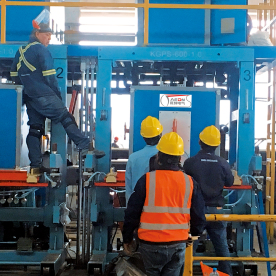[Inductor ]Understanding the Role of Inductors in Electrical Circuits: Their Function, Applications, and Importance in Modern Electronics
News 2024-8-28
****Inductors are fundamental components in electrical circuits, playing a crucial role in the operation of various devices and systems. As passive components that store energy in a magnetic field, inductors have unique characteristics that make them essential in many applications, from power supplies to radio frequency circuits. This article delves into the fundamentals of inductors, exploring their working principles, applications, and significance in modern electronics.
What is an Inductor?
An inductor is a passive electrical component that consists of a coil of wire, often wrapped around a core made of ferrite or iron. When an electric current flows through the wire, a magnetic field is generated around the coil. This phenomenon is known as electromagnetic induction, and it allows the inductor to store energy. The primary characteristic of an inductor is its inductance, which is measured in henries (H). Inductance quantifies the ability of an inductor to oppose changes in current.
How Inductors Work
The behavior of an inductor can be understood through the principles of electromagnetic induction formulated by Michael Faraday. When the current through an inductor increases, the magnetic field builds up, storing energy. Conversely, when the current decreases, the magnetic field collapses, releasing energy back into the circuit. This property of inductors enables them to resist sudden changes in current, making them excellent components for smoothing out electrical signals and maintaining consistent currents in circuits.
Types of Inductors
Inductors come in various types, each designed for specific applications. Some common types include:

Understanding the Role of Inductors in Electrical Circuits: Their Function, Applications, and Importance in Modern Electronics
2. **Iron Core Inductors**: These inductors have an iron core that increases inductance due to the higher permeability of iron, making them suitable for power applications.
3. **Ferrite Core Inductors**: Ferrite cores are used in small inductors to minimize losses and improve performance at higher frequencies.
4. **Toroidal Inductors**: These are ring-shaped inductors that provide better magnetic coupling and reduced electromagnetic interference (EMI).
5. **Variable Inductors**: These inductors have adjustable inductance, allowing for fine-tuning in applications such as tuning circuits.

Understanding the Role of Inductors in Electrical Circuits: Their Function, Applications, and Importance in Modern Electronics
Inductors have a wide range of applications in various fields of electronics:
- **Power Supply Circuits**: Inductors are used in power supplies to filter and smooth voltage levels, ensuring a stable output. They can be found in switching power supplies where they store energy during one part of the cycle and release it during another.
- **Radio Frequency Circuits**: In RF applications, inductors are crucial for tuning, filtering, and impedance matching. They help tune circuits to specific frequencies and reduce noise.
- **Signal Processing**: Inductors are often employed in audio and signal processing circuits, where they help filter out unwanted frequencies and enhance signal quality.
- **Transformers**: Inductors are essential components in transformers, which rely on the principle of mutual induction to transfer electrical energy between circuits.
- **Energy Storage**: Inductors are also used in energy storage systems, such as flyback converters and energy harvesting devices, where they can store and release energy as needed.

Understanding the Role of Inductors in Electrical Circuits: Their Function, Applications, and Importance in Modern Electronics
The significance of inductors in modern electronics cannot be overstated. As technology advances, devices increasingly require efficient energy management and signal integrity. Inductors help achieve these goals by regulating current flow, reducing noise, and providing energy storage solutions.
In applications such as electric vehicles and renewable energy systems, inductors are critical in developing efficient power management strategies. They assist in converting power from one form to another, ensuring optimal energy use.
Furthermore, as wireless communication technology evolves, inductors continue to be vital for circuit design. Their role in frequency tuning and filtering is essential in maintaining high performance in wireless systems.
Conclusion
Inductors are indispensable components in the realm of electronics, serving various functions across multiple applications. Their ability to store energy, smooth current fluctuations, and filter signals makes them essential for modern technological advancements. As we move towards an increasingly electrified world, understanding inductors and their applications will continue to be pivotal for engineers and designers in developing innovative electronic solutions.
